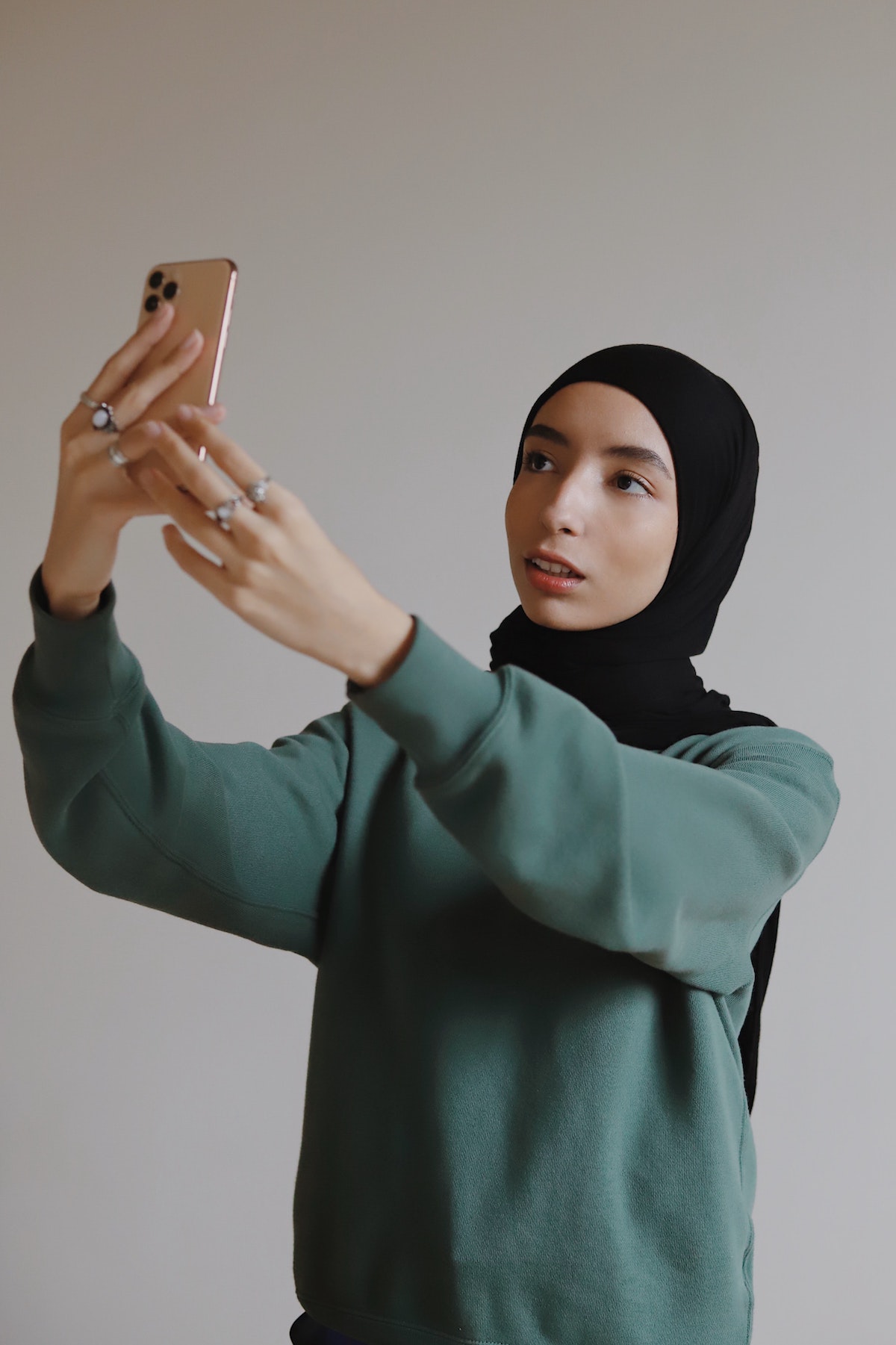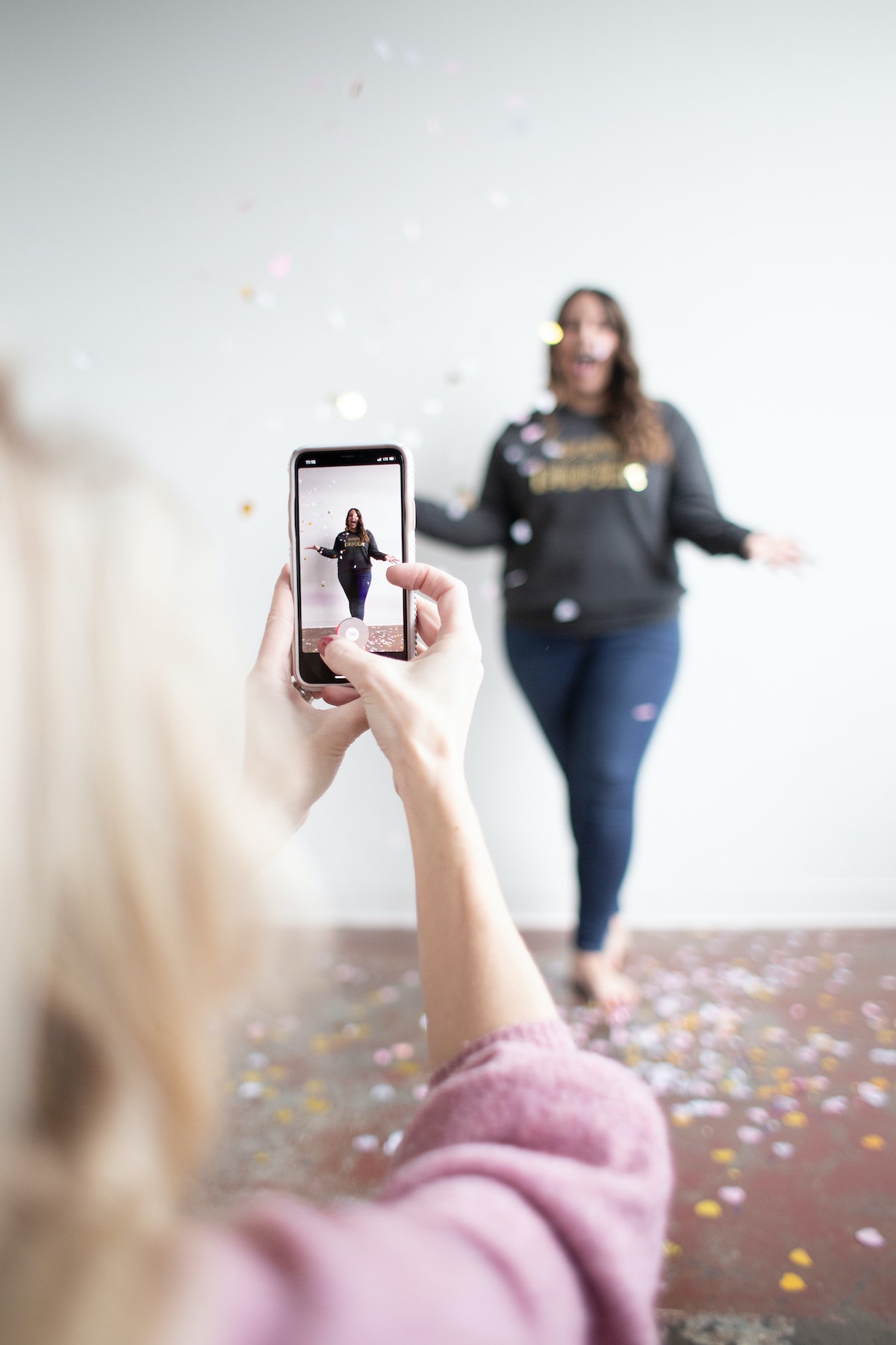
Two Colliding Worlds: Influencer Culture and Conscious Consumption
Influencers are the masters of social media. Marketing experts know that and use them to their own advantage, running over values such as conscious consumption and social responsibility.
The pandemic increased the use of social media, making TikTok and Instagram the main platforms worldwide. Arguably, it could be said that they came to conquer the position as people’s go-to source of entertainment, that until now had been occupied by TV. Livestream concerts, recipes, exercise and beauty routines, dance challenges… These were the only way of tasting what our lives were like. Who was responsible for all this? The influencers.
Despite having been in our lives for quite a while now, their impact has reached a whole new level. They either tell us about their daily lives, show us their groceries or keep us up to date with the latest fashion trends. You could say that they are the ultimate representation of consumerism. The truth is that’s basically their job, influence people on a great scale. The problem begins when that influence is used to encourage people to buy more, especially when it comes to fashion.

WHY DO WE TRUST THEM?
Psychological theories explain to a great extent the reasons why influencers have such effect on us. Marketing experts use these theories to get the most out of their strategies and campaigns. They capitalize on our most common behaviours, emotions and tendencies by making personal connections. According to the Association of Psychological Science, for most people fitting feels more comfortable than bucking convention. This tendency has led to habits such as recycling to become more widespread.
However, conformity can also carry negative consequences, a well-known example of this being teens drinking alcohol just because “all the cool kids are doing it”. The constant psychological studies made on conformity are showing that it is not just a learned behaviour, but innate and much more pronounced in humans. Thus, consumers who want to fit in or be similar to the pack, feel the need to keep up with the Joneses.
Influencers that are credible in one area, become credible in others thanks to what is called: the halo effect. As Psychology Today defines it, it occurs when an initial positive judgment about someone unconsciously colour the perception of the individual as a whole. Consequently, followers see every piece of content as something that they have to dive into. So, if they start wearing turtlenecks in summer, we instantly think it’s a new cool trend and want to buy more turtlenecks.


USING INFLUENCE CONSCIOUSLY
We interviewed Maxine Bédat, co – founder of the ethical fashion retailer Zady; and the New Standard Institute (a “think tank” aimed at raising levels of consciousness in the fashion industry); and author of Unraveled; in order to know to what extent influencers can change our perception of reality.
Bédat finds the root of the problem in the business models of both influencers and social media. Their main goal is to sell more, without taking into account the consequences it can trigger. We often fixate on businesses and corporations, but influencers should re – think what they’re promoting. It doesn’t do much good to put up Instagram stories supporting movements like Fridays for Future if the next one is promoting a fast – fashion brand or product.
It does depend on the influencer. However, Bédat makes clear that “influencing” is a business and many influencers are relying on this work to put food on the table, pay bills and some to fund a lavish lifestyle and seek out status, all of that, sure will impact the types of partnerships and deals an influencer will take that might not be related to any genuine appreciation of a product.
Some do not even inform their followers that they are promoting a product. The audience thinks it is something they normally consume and, because they trust them, they buy it. Bédat thinks this is an important issue: “Governments need to step up with enforcement so that influencers know to play by the rules.”



Despite all this, she sees the big problem on the fake life influencers promote: “Influencing, social media, all of it is a business, a huge, enormous business and it all predicated on tapping into our desires and our anxieties, all to make money, money for the influencer, and brands and most significantly the social media platforms. I think as a society we should really question the role of these businesses because they are having an enormous impact on our mental health and on the health of the planet – while the planet burns, we, fueled by social media algorithms turn to new products at an ever increasing pace.”
With the demand for sustainable and eco – friendly products rising companies should attempt a new approach to their strategies. Influencers can help to create transparency in sharing the brand’s own sustainable journey while reaching a whole new audience of eco -friendly buyers. It’s a win – win situation since influencers who promote sustainable brands are perceived as authentic, transparent and truthful. Values that are highly regarded among followers.

As far as we, the consumers, are concerned we should connect with our more rational side and not let a flashy Instagram story fool us into buying something we don’t want, or even like, just because the influencer of the moment promotes it. Remove the ones who don’t make us feel good about ourselves, be realistic and know that not all of us can keep up (nor should) with their pace of life. We should tune in with the ones that align with our values and only buy things we really like and need.

+ Words: Ane Briones, Luxiders Magazine
Journalism graduate | Basque Country based writer
IG: @anebriones






